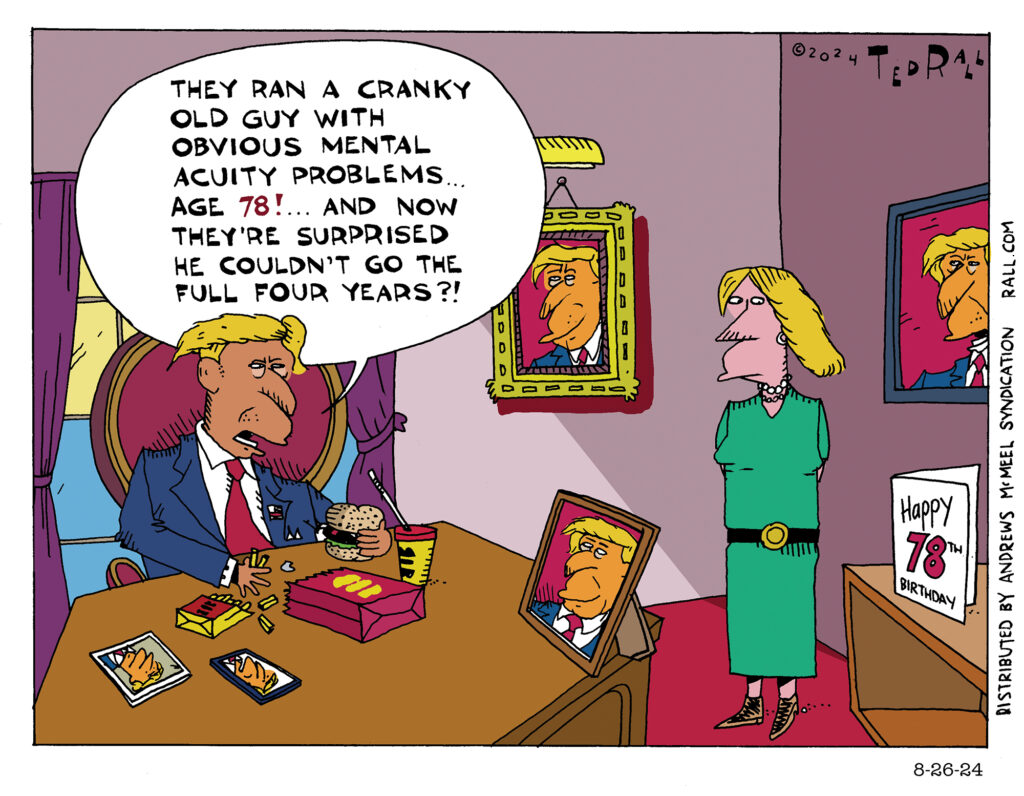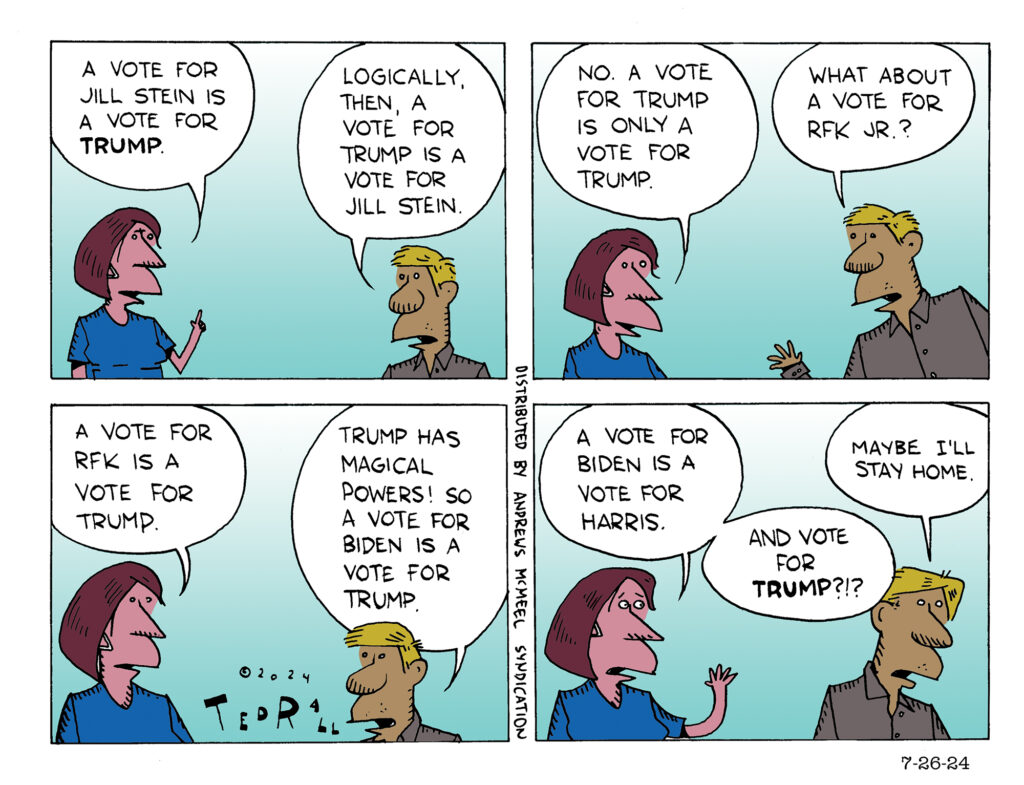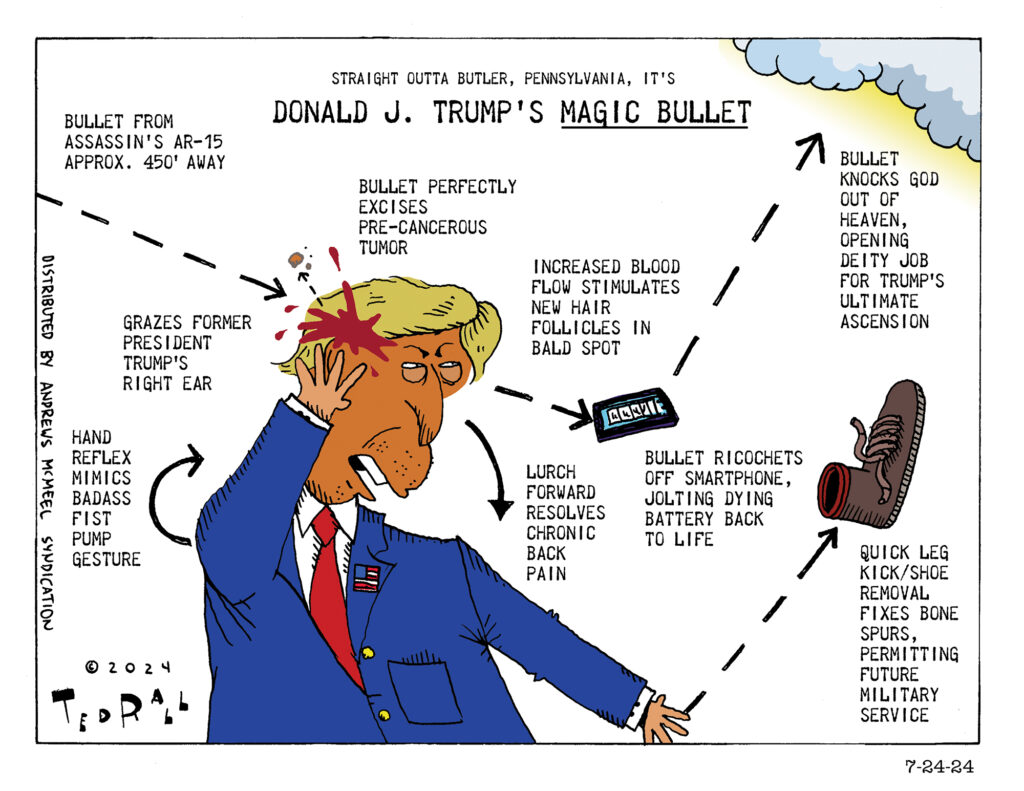On the DMZ America Podcast, political cartoonists and analysts Ted Rall (on the Left) and Scott Stantis (on the Right) break down the news and politics that affect your life.
This week, Kamala Harris accepts the Democratic presidential nomination. Who will prevail in the upcoming debates between her and Trump? Will she be able to avoid policy specifics and appearances with a hostile press through Election Day?
Also, Scott and Ted explain the current state of the wars in Gaza and Ukraine, the latter of which now has a new front in Russia as well.
Watch the Video Version: here.


 On
On  Political cartoonists and analysts Ted Rall (on the Left) and Scott Stantis (on the Right) take on the week in politics.
Political cartoonists and analysts Ted Rall (on the Left) and Scott Stantis (on the Right) take on the week in politics. Political cartoonists and analysts Ted Rall (on the Left) and Scott Stantis (on the Right) take on the week in politics.
Political cartoonists and analysts Ted Rall (on the Left) and Scott Stantis (on the Right) take on the week in politics.

 Political cartoonists and analysts Ted Rall (on the Left) and Scott Stantis (on the Right) react to a shocking development in the world of politics: President Joe Biden has finally, after weeks of intrigue and pressure from within the Democratic Party succumbed to concerns about his mental acuity and dropped out of the 2024 presidential campaign weeks before the Democratic National Convention.
Political cartoonists and analysts Ted Rall (on the Left) and Scott Stantis (on the Right) react to a shocking development in the world of politics: President Joe Biden has finally, after weeks of intrigue and pressure from within the Democratic Party succumbed to concerns about his mental acuity and dropped out of the 2024 presidential campaign weeks before the Democratic National Convention. With the exception of those who explain themselves, like John Wilkes Booth and
With the exception of those who explain themselves, like John Wilkes Booth and